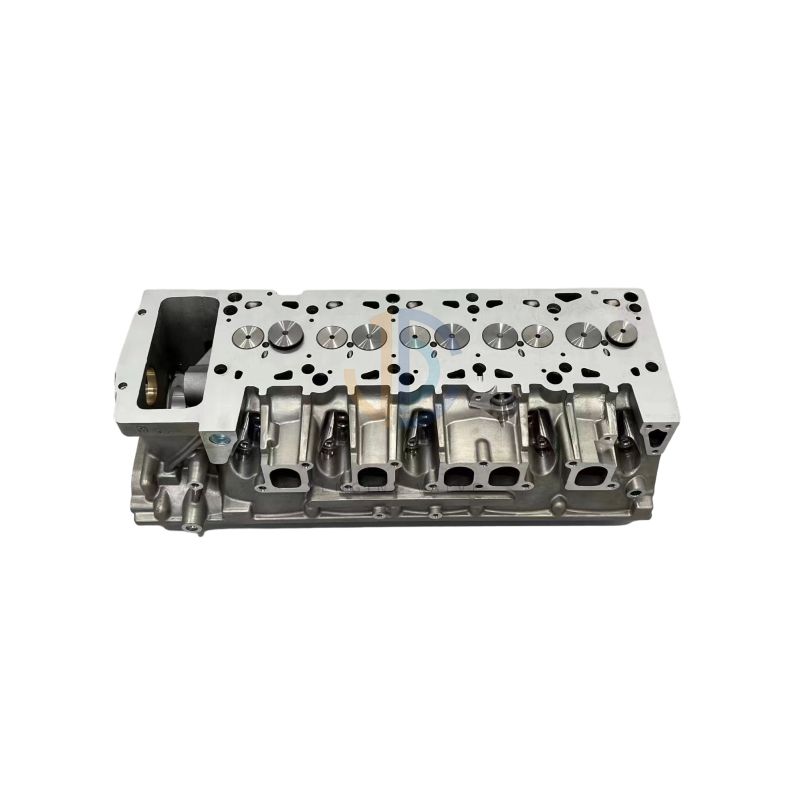Jul. 01, 2023
Automobiles & Motorcycles
The cylinder head, being a crucial component of an internal combustion engine, is susceptible to various forms of damage. This article aims to provide a comprehensive understanding of why cylinder head damage occurs, exploring its causes and the potential consequences that can arise. By delving into these aspects, you will gain valuable insights into the maintenance and care required to ensure the longevity and optimal performance of your engine.
Common Causes of Cylinder Head Damage
Several factors can contribute to cylinder head damage. Let's examine some of the most common causes:
1. Overheating
One of the primary causes of cylinder head damage is overheating. When the engine operates at excessively high temperatures, the cylinder head may warp or crack. This can lead to coolant leaks, loss of compression, and overall engine inefficiency. Overheating can result from a variety of issues, including a malfunctioning cooling system, low coolant levels, a faulty thermostat, or a blocked radiator.
2. Incorrect Torque Specifications
During the assembly of an engine, it is crucial to follow the manufacturer's recommended torque specifications for the cylinder head bolts. Failing to tighten the bolts to the specified torque can result in uneven pressure distribution, causing the cylinder head to warp or develop leaks. Additionally, over-tightening the bolts can also lead to damage.
3. Improper Maintenance
Inadequate maintenance practices can contribute to cylinder head damage over time. Neglecting routine inspections, failing to change the engine oil at recommended intervals, or using low-quality coolant can lead to the buildup of deposits and contaminants in the cylinder head. This can affect the seal between the cylinder head and the engine block, leading to compression loss and potential damage.

4. Pre-Ignition and Detonation
Pre-ignition and detonation refer to abnormal combustion events that can cause severe stress on the cylinder head. Pre-ignition occurs when the air-fuel mixture ignites before the spark plug fires, while detonation is characterized by an uncontrolled explosion within the combustion chamber. These events can create high pressures and temperatures, potentially causing damage to the cylinder head and other engine components.
5. Poor Lubrication
Insufficient lubrication can lead to increased friction between moving parts, including the camshaft, valves, and lifters, which can put excessive stress on the cylinder head. This can result in accelerated wear and potential damage. Inadequate lubrication can stem from using the wrong type or grade of engine oil, oil leaks, or a malfunctioning oil pump.
Consequences of Cylinder Head Damage
Cylinder head damage can have significant consequences for the engine's performance and reliability. Some of the potential outcomes include:
1. Loss of Compression
When the cylinder head is damaged, it can compromise the seal between the combustion chamber and the engine block. This leads to a loss of compression, reducing engine power, fuel efficiency, and overall performance.
2. Coolant Leaks
Cracks or warping in the cylinder head can result in coolant leaks. This not only leads to overheating but can also contaminate the engine oil, causing further damage to internal components.
3. Misfires and Rough Idling
Cylinder head damage can disrupt the proper functioning of valves and spark plugs, leading to misfires and rough idling. This can result in reduced engine smoothness and drivability.
4. Oil Contamination
If the Engine Cylinder Head Assembly gasket fails or the cylinder head itself is damaged, it can allow the mixing of engine oil and coolant. This contamination can degrade the lubricating properties of the oil and cause increased wear on engine components.
5. Expensive Repairs
Repairing or replacing a damaged cylinder head can be a costly endeavor. Depending on the extent of the damage, it may require professional expertise and extensive labor, adding to the overall repair expenses.
Conclusion
Understanding the causes and consequences of cylinder head damage is vital for maintaining the health and performance of your engine. By addressing issues such as overheating, following proper torque specifications, conducting regular maintenance, preventing abnormal combustion events, and ensuring adequate lubrication, you can minimize the risk of cylinder head damage and prolong the life of your engine.
If you are interested in sending in a Guest Blogger Submission,welcome to write for us!
All Comments ( 0 )